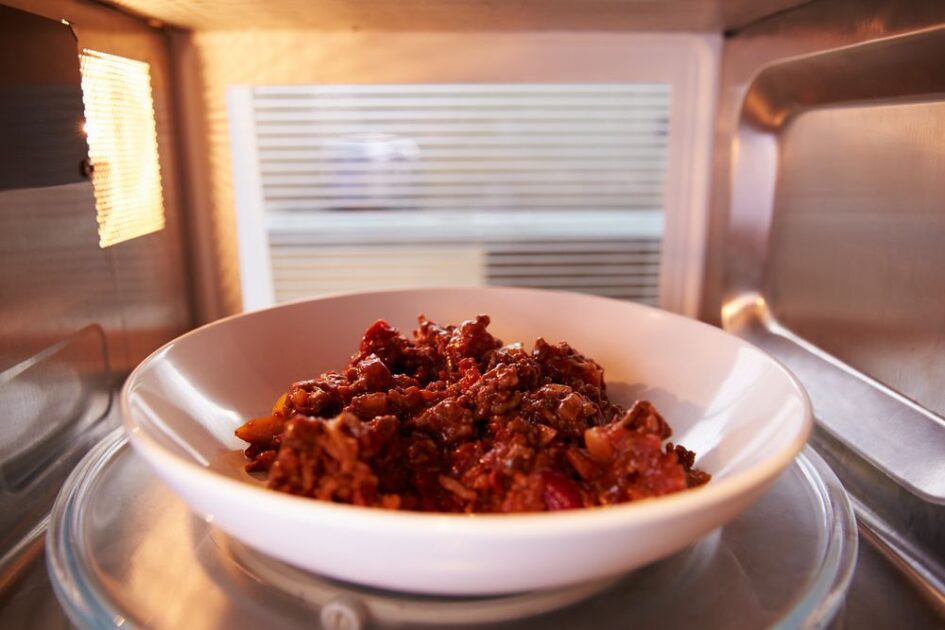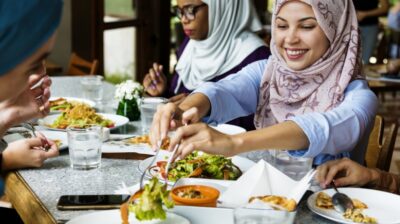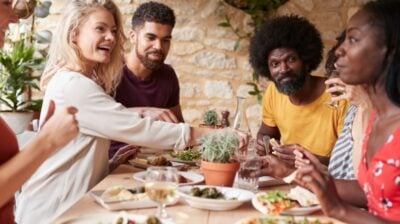Cooking safely with leftovers
Try and make use of leftover food instead of letting it go to wate

Bulk cooking and having leftovers is a great way to cut down on time spent preparing meals. It can also be a great way to reduce food waste by choosing to use your leftovers rather than dump them in the bin.
However, if you have leftovers you want to use, it’s important to use them safely. This means cooling, refrigerating, freezing, and reheating properly.
Important things to know about cooking with leftovers
Here are some things to remember when you have leftovers:
Cooling your leftovers
Leftovers should be cooled as quickly as possible. When you’re finished cooking, divide your leftovers into containers and leave on the countertop to cool.
After they have cooled down, cover them and put them in the fridge within two hours of cooking.
Freezing
If you want to freeze your leftovers, you will need to chill the food first. This means cooling your leftovers fully and putting them in the fridge until they have chilled. You can move them into the freezer once they’re chilled.
If you want to freeze leftover, get them into the freezer as soon as possible, instead of waiting a few days. It’s best to freeze food when it’s at its freshest.
Defrosting
If you froze your leftovers and you now want to use them, it is important to make sure they are fully defrosted first. The best way is to defrost overnight in the fridge. If you don’t have time to defrost overnight, you can also defrost in the microwave using the defrost setting, or setting it to at least 50% power. It’s important to make sure the edges of the food don’t start to cook while the middle is still defrosting, so never defrost on full power. After defrosting in the microwave, start cooking with the leftovers straight away.
Avoid defrosting at room temperature.
Reheating
Always reheat leftovers until they are piping hot all the way through. If heating in the microwave, you may need to stop halfway through to stir the leftovers, then continue heating. This helps to make sure they are hot the whole way through.
Use them up quickly
If your leftovers aren’t frozen, then they should be eaten within three days.
About use-by, best before, and sell-by dates
- Use-by date is a deadline and key for food safety, meaning food should be eaten by this date
- Best-before date is a guideline and usually appears on longer lasting food. Food can be eaten after this date but may not taste as good
- Sell-by/display until this is more of a date for shop guidelines around stock control, and less important for customers
Other ways to avoid food waste
Using leftovers is a good first step to cutting down on food waste, but here are some other ways you could reduce your waste:
Know what you need before you go shopping
Check what’s in your cupboards before you go shopping and make a list for your weekly shop. It can be easy to forget what you have at home once you’re actually at the supermarket, so a list is always useful. It also helps to make sure you don’t forget anything.
If you decide buying things in bulk because they’re on offer, be prepared to use it and don’t let it go to waste.
Plan your meals
Come up with meal plans for the week so that you get the most out of your food. Take a look at what’s in your fridge and cupboards and choose meals that will allow you to use them up. This also means you don’t have to spend any time in the evenings wondering what to make for dinner or what to bring for lunch the next day.
Know what needs to be used first
Keep an eye on expiration dates so you get use out of things before they’re gone off. Take a look at your fresh fruit and vegetables and make sure to use anything that looks like it isn’t going to last much longer. Save the new items you just bought for after you’ve used up everything else.






